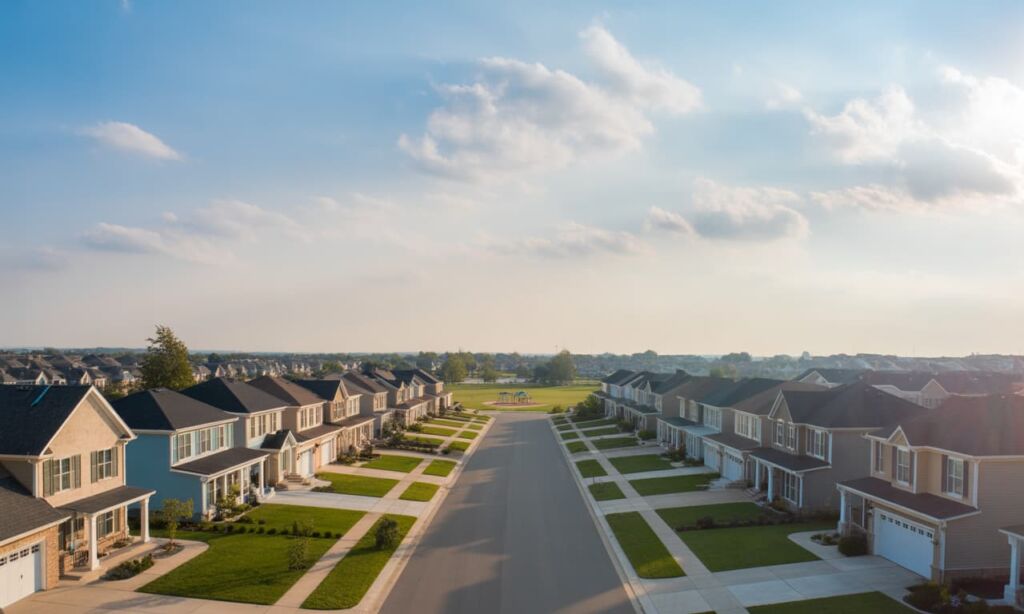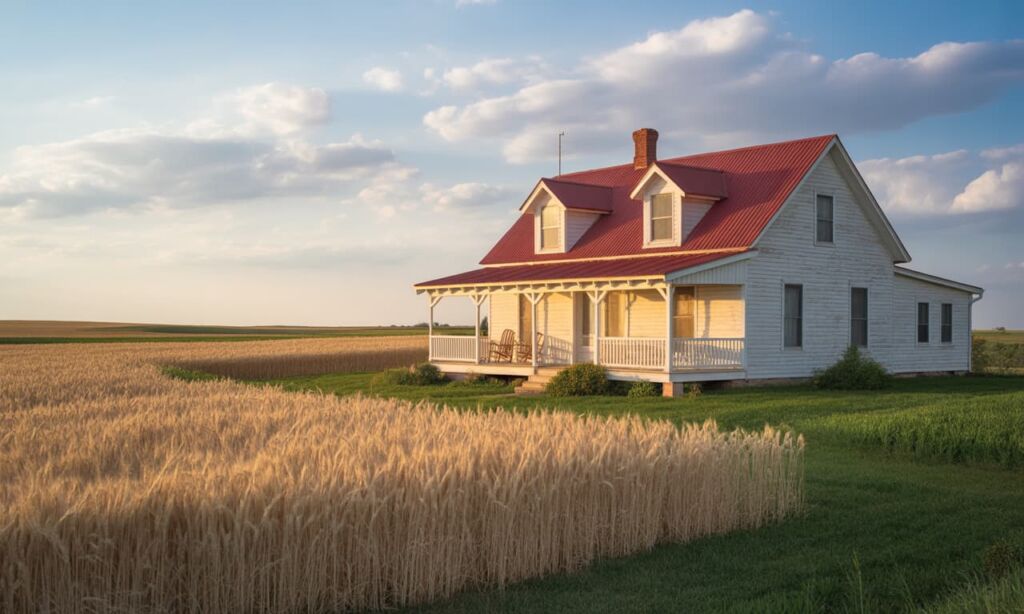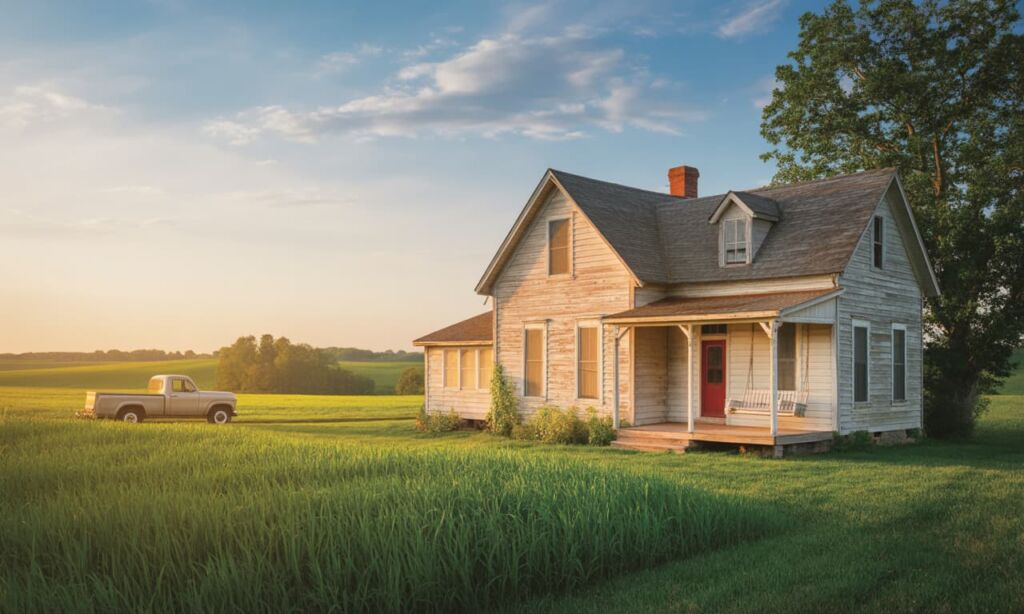Buying land sounds pretty straightforward, right? Find a piece of property you like, pay for it, and you’re good to go. Not exactly. The reality is, buying land is a whole different beast compared to buying a house. It comes with its own set of rules, red flags, hidden costs, and legal maze work that can trip up even seasoned investors. That’s why it’s crucial to ask the right questions before signing anything. Whether you’re looking for a quiet spot in the country, a slice of suburbia to build your dream home, or a future development investment, this guide breaks down what you really need to know.
Below, we’ll cover the key areas you should dig into before making any decisions: location & zoning, utilities & infrastructure, legal & ownership issues, cost & restrictions, plus a few bonus tips you definitely don’t want to miss.
Zoning and Neighborhood Insights Every Land Buyer Should Know

ILet’s start with the most obvious question: Where is the land, and what is it zoned for? You might fall in love with a gorgeous open plot, only to find out it’s zoned for agricultural use and you can’t build a home on it.
Here are some location-specific questions to ask:
- What is the land zoned for? Residential, commercial, industrial, and agricultural all have different uses. You can’t just plop a house on commercial land or set up a business on residential property.
- Are there any future development plans nearby? Check with the local planning department. A beautiful view can quickly turn into a noisy highway or shopping center.
- How accessible is the land? Is there a public or private road leading to it? Easements may be necessary, especially for rural properties.
- What are the neighborhood trends? Is the area growing, stagnant, or declining? This affects not only your lifestyle but your investment return down the road.
In short, don’t just look at the land, look around it. Your dream location should work for both your current plans and your long-term goals.
Evaluating Land Utilities and Infrastructure Essentials
While owning land may feel like a huge milestone, the reality of making it livable hinges on infrastructure. Before you celebrate, it’s important to understand whether the land can support basic needs like power, water, sewage, and internet. These essentials aren’t always available—especially in rural or undeveloped areas—and getting them set up can cost far more than expected. Evaluating these factors early ensures your dream property doesn’t turn into an expensive and impractical burden.
You need to ask:
- Is there access to electricity, water, and sewage? Some rural or off-grid plots don’t come with these. Connecting them can be very expensive.
- What are your options for waste disposal? If there’s no city sewer, you’ll need to install a septic system, and not all land can support one.
- Is the land in a flood zone or prone to natural disasters? This affects not only your safety but also insurance costs and even building codes.
- Is internet access available? Especially important if you work remotely or need smart-home functionality.
Getting answers to these infrastructure questions early can save you from buying a money pit that’s basically unlivable or prohibitively expensive to develop.
Top Questions to Ask When Buying Land to Avoid Legal and Property Disputes
Legal issues are the murky waters of land buying. You’d be surprised how often people buy land, only to find out they don’t really own all of it, or worse, they’re stuck with someone else’s problems.
Ask these critical questions:
- Can I get a clear title? This is non-negotiable. You need a clean title free of disputes, liens, or legal claims.
- Are there any easements, liens, or encroachments? Easements might allow someone else (like a utility company or neighbor) to access your property. Liens mean unpaid debts tied to the land. Encroachments could involve neighboring structures crossing into your property.
- Is the land part of a subdivision or HOA? If so, there might be rules about what you can and can’t do with the land.
- Are there any historic designations or environmental protections? These can severely restrict how the land is used or developed.
Hiring a real estate attorney or title company to do a thorough title search is highly recommended. You don’t want any surprises showing up after the deal is done.
Analyzing Land Costs, Fees, and Usage Restrictions
Beyond just the initial purchase price, owning land involves several ongoing expenses and potential limitations that can significantly impact your plans, budget, and timeline. Costs like property taxes, HOA fees, insurance premiums, and expenses to make the land usable—such as clearing trees or installing utilities—can quickly add up. Additionally, building restrictions, permit requirements, and zoning laws may limit what you can actually do with the land, regardless of your original intentions. Understanding these factors upfront helps you avoid costly surprises and ensures you’re making a well-informed investment.
Here’s what to ask:
- Are there property taxes or HOA fees? Know the yearly expenses upfront. Some rural lands may have low taxes, while others may be in high-tax districts.
- Are there building restrictions or permit requirements? Even if the land is zoned for residential use, there may be limitations on home size, design, or even what materials you can use.
- What are the insurance costs? If it’s in a flood or wildfire-prone area, premiums can be sky-high.
- What will it cost to make the land usable? Clearing trees, grading the land, installing utilities all of these can add thousands to your budget.
And don’t forget resale value. If you’re planning to sell later, you’ll want to make sure you’re not overpaying for a piece of property that’s hard to offload.
Top 5 Red Flags to Watch For When Buying Land

Let’s be honest, buying land can feel like an adventure. But just because a property looks like a slice of paradise doesn’t mean it’s problem-free. Sometimes, the biggest issues aren’t visible to the eye but hidden in paperwork, zoning codes, or beneath the surface literally.
Before you get too attached, take a hard look at these common red flags that can quickly turn a “dream lot” into a financial headache. When buying land, one of the most critical issues to consider is access. If there’s no legal road or easement to the property, you might not be allowed to reach it, making your land virtually unusable. Another common pitfall is unclear or disputed boundaries—without a proper land survey, you could end up with less land than you thought or face conflicts with neighbors. It’s essential to clarify these details before finalizing a purchase.
Additionally, zoning regulations can derail your plans if the land isn’t zoned for your intended use. For example, buying commercial land when you plan to build a home can often result in serious setbacks. Utility availability is another crucial factor—living off-grid may sound appealing, but setting up water, power, and sewage systems from scratch can be prohibitively expensive. Lastly, environmental concerns like wetlands, contamination, or protected habitats can legally restrict what you can do with the land, sometimes even preventing any development altogether.
Spotting even one of these red flags doesn’t always mean you should walk away, but it does mean you need to pause and dig deeper. A little due diligence now can save you from massive regrets (and bills) later.
Your Land-Buying Checklist
Here’s a quick list to keep in your back pocket:
- What is the zoning classification?
- Are there any future development plans nearby?
- Is there road access to the property?
- Are utilities (water, electricity, sewage) available?
- Is it located in a floodplain or another disaster-prone zone?
- Can I obtain a clear, lien-free title?
- Are there any easements or encroachments?
- What are the annual property taxes or HOA fees?
- Are there building restrictions or special permits required?
- What is the potential resale value in this area?
FAQs About Buying Land
Q: Can I finance land the same way I would a house?
A: Sort of. Land loans exist, but they often require larger down payments and come with higher interest rates. Raw land (without utilities or road access) is especially tricky to finance.
Q: How do I find out the zoning of a property?
A: Contact the county or city zoning department. They’ll have zoning maps and should be able to explain what’s allowed.
Q: Do I need title insurance for land?
A: 100% yes. This protects you from past legal issues or ownership claims that might arise later.
Q: What’s the difference between raw, vacant, and improved land?
A: Raw land is untouched with no utilities or development. Vacant land may have access or roads, but no buildings. Improved land has things like septic, electric, or a driveway installed.
Q: Should I hire a real estate agent or go it alone?
A: If you’re new to land buying, a knowledgeable agent can be a huge help. Just make sure they specialize in land, not just homes.
The Land Method: A Smarter Way to Buy
If you’re serious about buying land, whether it’s for your dream home, long-term investment, or development opportunity, partnering with the right resource can make all the difference. The IRA Club offers expert guidance on how to invest in real estate through a Self-Directed IRA, giving you the flexibility to purchase land, earn tax-advantaged returns, and grow your retirement wealth. You don’t have to navigate the complexities of land investing alone. With IRA Club, you’ll have a knowledgeable partner by your side. Let’s build something great together.
Ginis Garcia is a seasoned real estate investor with over 14 years of experience helping both new and experienced investors achieve their goals in the housing and land markets.
- Ginis Garcia
- Ginis Garcia
- Ginis Garcia
- Ginis Garcia


